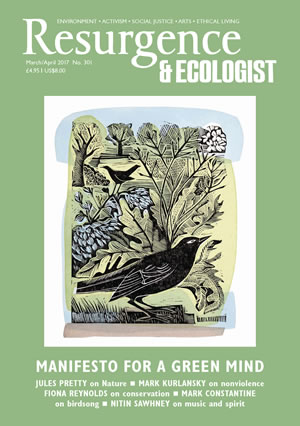Is there a bigger disconnect in the human mind than that between our utter dependence on plants, and plants themselves? Nowadays we tend to look on organisms with roots and leaves and flowers merely as part of the furniture, and the fact that all human existence is ultimately reliant on a suite of about three dozen crop plants and that without them we are dead is something we seem to have forgotten entirely.
To bridge such a cognitive chasm would be a notable public service, and here comes a distinguished botanist, Stephen Harris, Druce Curator of the Oxford University Herbaria, attempting to do just that with the snappily titled What Have Plants Ever Done for Us?
The subtitle is Western Civilization in Fifty Plants, and my guess is that Harris started out with that, but that the publishing types at the Bodleian Library saw the success of Tony Juniper’s What Has Nature Ever Done for Us?, his best-selling account of the value of ecosystems to economies, and the temptation to ride in its slipstream was just too great.
It’s a good idea, anyway, to remind us just how much we owe to maize and rice and wheat, to tea and coffee and sugar, to cotton and rubber and palm oil, with a mini-essay on each species, but I have to say at the outset that it is not original. A glance at the botanical bit of my bookshelves shows a noted and authoritative precursor, The New Oxford Book of Food Plants, while right next to it on the shelf is Fifty Plants that Changed the Course of History, by Bill Laws, published in 2010 by David and Charles.
Why buy it, then? Does it have a unique selling point? The answer is yes: scholarship. As might be expected of an Oxford don specialising in plant science, Harris has mastered the botanical literature and knows a great deal about how in every case a wild plant was domesticated to become the variety familiar to us today. It makes for very entertaining glimpses of unfamiliar history: “During the seventeenth century, the kaleidoscope of carrot colours in western Europe was gradually reduced to one.”
Indeed, each chapter sparkles with engaging insights and curious facts: 38 vineyards were mentioned in the Domesday Book; whole garlic bulbs were found in the tomb of Tutankhamun; ‘tobacco’ is one of the few words handed down to us from the Taíno people, the Indigenous Caribbeans wiped out soon after Columbus first encountered them.
Harris also possesses a gift for lapidary phrases: “Few plants have inspired Europeans to show off more than the pineapple.” But his main purpose is to get across the sheer ubiquity of plants in our lives, as our cereals and our vegetables, our drugs and our drinks, our fruits, our spices and our flowers.
He succeeds by making every one of them fascinating, and also by the originality of some of his choices: the book begins, as you might expect, with barley, provider of our food and drink for thousands of years, but it ends with thale cress, a weedy little white flower only significant from the year 2000, when it became the first plant to have its genome sequenced. (It has since become a model species for genetic studies.)
This is a book in which what plants have done for us is very entertainingly set down.







